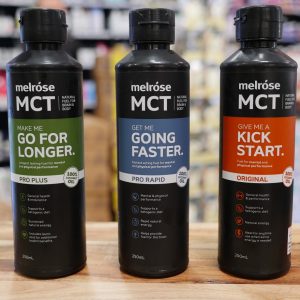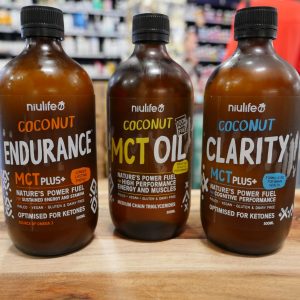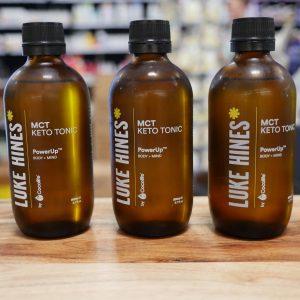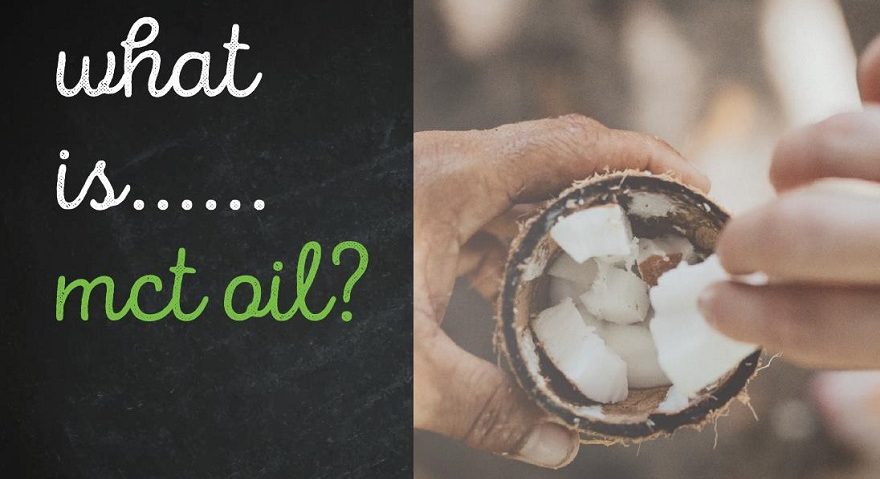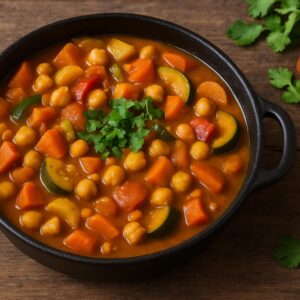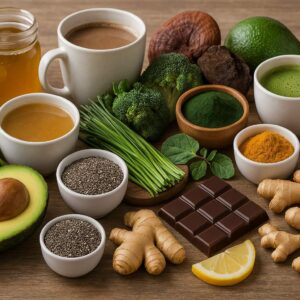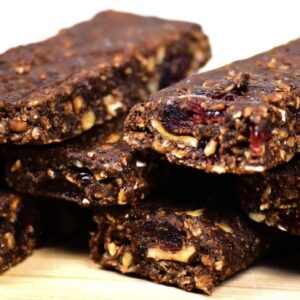Butter coffee, optimised coffee, “bulletproof” coffee……… you may have noticed a version of this beverage starting to appear on your local café drinks list or becoming a standard on your favourite health guru’s recommended recipes. If you have, then you may be familiar with MCT oil, a key ingredient in this creamy morning brew many people are raving about.
You may also say, what on earth is MCT oil?
MCT’s, short for Medium Chain Triglycerides, are saturated fatty-acids found in coconut oil. The MCT oil you will find sold on the shelf is a concentrated oil derived from coconut oil.
The specific medium-chain fatty acids found in MCT oil are C6 (Caprylic), C8 (Caproic), C10 (Capric) and C12 (Lauric). These fatty acids create ketone molecules that have the ability to bypass the metabolic processes of the liver to become direct energy sources for the brain and muscles.
Apart from being a great energy source, MCT oil has also been shown to assist with:
- Improving cognitive function and focus, as well as helping to manage symptoms of autism, Alzheimer’s and epilepsy.
- Reducing lactic build up in athletes and providing fat sources for energy.
- Managing weight loss by increasing satiety (feeling of fullness) and thermogenesis (speeds up your metabolism to burn more fat).
- Supporting gut health by optimising growth of good bacteria and inhibiting harmful fungi and pathogens.
A good quality MCT oil will contain C8 and C10 as these acids are more readily converted to energy. That is, they have the greatest ability to bypass the liver to provide the most benefits to the body and mind without interference from a variety of other bodily functions.
You may find C6 and C12 in some MCT oils. However, coconut oil contains a very small amount of C6 and it is known to have a rancid flavour. Also, C12 does need to be metabolised in the liver before it can be converted to energy. If you are wanting to get a more sustained energy release from your MCT oil, you may find it will contain C12.
It is also important to check that the MCT oil you purchase is derived from a sustainable source; has been naturally extracted from the coconut without the use of chemical solvents; and is without additives, preservatives or fillers.
So why can’t I just use coconut oil?
Certainly, a great cold pressed extra virgin coconut oil should be a non-negotiable pantry item. You will still get the health benefits of the medium chain fatty acids in your everyday coconut oil. However, coconut oil is mostly C12 (Lauric acid) which is an important anti-microbial. As such, coconut oil supports your gut health and overall wellbeing. Also, coconut is an amazing tasty cooking oil and a great moisturiser!
Coconut oil is very low in C8 and C10 so it will not effectively give you the energy and thermogenic benefits to the level of an MCT oil.
So apart from putting it into my morning coffee, how else can I use MCT oils in my daily diet?
If you are new to MCT oils, it’s is recommended to start with a teaspoon and then work your way up from there. Like all healthy oils, MCT oil still has a high caloric value. As with all food choices, be mindful of how much you are taking and only use what is necessary for the results you are trying to achieve.
A good MCT oil should be flavourless so you can add it to any of your normal beverages from tea to turmeric lattes.
You can also try:
- Adding it into your smoothie or post workout shake
- Drizzling it over your salads or veggies
- Incorporating it into your protein balls or raw slice recipes
- Stirring it into your yoghurt
Or if you are pushed for time, just eat it straight off the spoon (we dare you!)
you may also like:
sesame and protein bar with mct oil
Sources: https://lukehines10.com/news/mct-keto-oil-vs-coconut-oil
https://www.healthline.com/nutrition/mct-oil-benefits#section1
